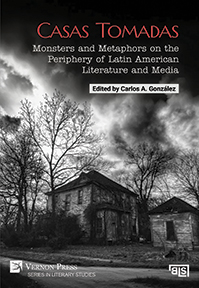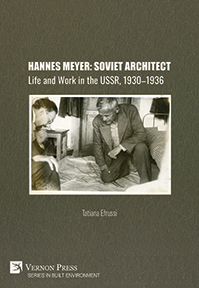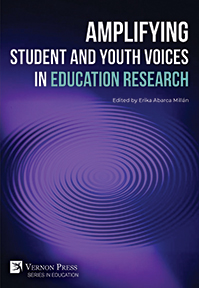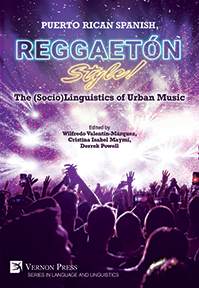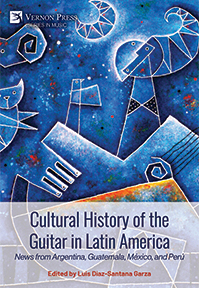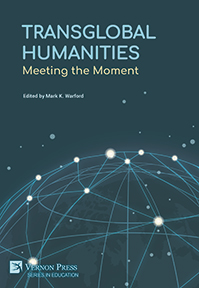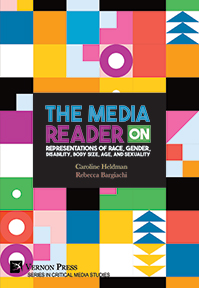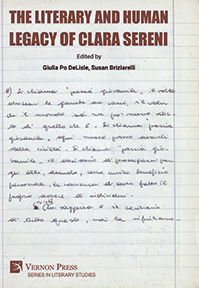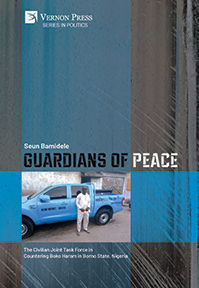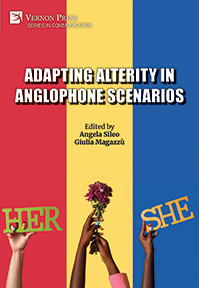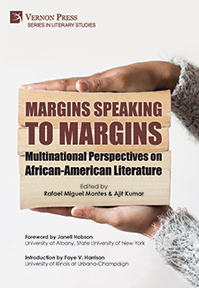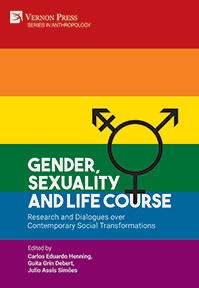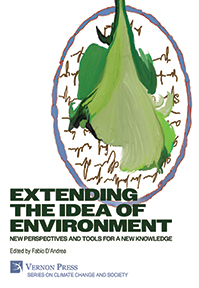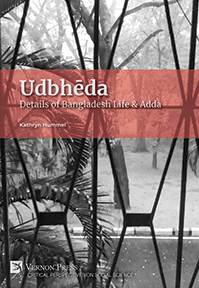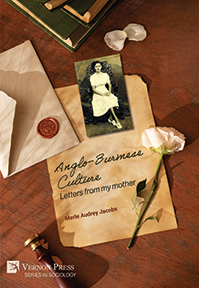Search
Browse
by Publication status
by Subject
Anthropology (29) Art (129) Business and Finance (27) Cognitive Science and Psychology (55) Communication and Journalism (50) Economics (63) Education (71) History (153) Human Geography (21) Interdisciplinary (45) Language and Linguistics (144) Law (16) Music Studies (20) Philosophy (165) Political Science and International Relations (107) Sociology (333) Statistics and Quantitative Methods (21)by Series
Series in Literary Studies (74) Series in Philosophy (60) Series in Education (56) Series in Sociology (46) Bridging Languages and Scholarship (38) Series in Politics (34) Series in World History (32) Series in Language and Linguistics (26) Series in Philosophy of Religion (22) Cognitive Science and Psychology (21) Series in American History (20) Critical Perspectives on Social Science (19) Series in Art (19) Series in Critical Media Studies (17) Series in Cinema and Culture (16) Curating and Interpreting Culture (15) Series in Anthropology (14) Series on the History of Art (14) Economics (14) Series in Business and Finance (13) Series in Music (13) Series in Communication (10) Series in Performing Arts (9) Series on Climate Change and Society (9) Philosophy of Personalism (8) Series in Law (8) Series in Economic Methodology (7) Women's Studies (7) Classics in Economics (6) Series in Built Environment (6) Series in Economic Development (6) Philosophy of Forgiveness (5) Series in Economic History (5) Series in Philosophy of Science (5) Series in Social Equality and Justice (5) Series on the History of Science (4) Serie En Estudios Literarios (3) Serie en Sociología (3) Series in Contemporary History (3) Series in Creative Writing Studies (3) Series in Design (3) The Interdisciplinary Built Environment (3) Serie en Comunicación y Medios (2) Serie en Historia (2) Serie en Música (2) Serie sobre Cambio Climático y Sociedad (2) Series in Heritage Studies (2) Series in Innovation Studies (2) Series in Philosophy of Race (2) Political Imaginaries: New Imperatives (1) Serie en Ciencias Políticas (1) Serie en cine y cultura (1) Serie en Entorno Construido (1) Serie en Estudios Culturales (1) Serie en Filosofía (1) Serie en Filosofía de la Ciencia (1) Series in Classical Studies (1) Series in Economics of Technological Change (1) Series in Urban Studies (1)by Language
English Spanishby Author
Casas Tomadas: Monsters and Metaphors on the Periphery of Latin American Literature and Media
Edited by
Carlos A. González, Harvard University
Availability: In stock
248pp. ¦ $113 £87 €104
'Casas Tomadas: Monsters and Metaphors on the Periphery of Latin American Literature and Media' examines how Latin American writers, filmmakers, and artists use monstrosity to reflect on marginalization, identity, and social trauma. This volume brings together close analyses of literature, film, and visual art from across Latin America, exploring how the monstrous symbolizes resistance to cultural, political, and historical oppression. Organized into four sections—Night Lights, In the Grip of Monsters, Echoes in the Darkness, and Sinister Spaces—the book offers case studies on works by Mariana Enríquez, Samanta Schweblin, Issa López, and others. Each chapter reveals how monsters, from mythic figures to supernatural landscapes, serve as potent metaphors for issues like queer and feminist activism, postcolonial haunting, and socio-political violence. Contributors engage with genres from horror and the Gothic to speculative fiction, situating monstrosity within Latin American experiences of violence, trauma, and resilience. Distinct for its interdisciplinary approach, 'Casas Tomadas' will serve as a key resource for students and researchers in Latin American Studies, Cultural Studies, and Gothic and Horror Studies. Its focused structure makes it ideal for classroom adoption, while its fresh perspectives on Latin American Gothic and the politics of monstrosity offer new insights for scholars in queer and postcolonial theory.
Vagabondage: A Timeless Reaction to the Malignancy of Western Civilization
ISBN: 979-8-8819-0239-1Availability: Forthcoming
$62 £48 €57
This book concerns why the writers featured sought to exile themselves from mainstream society, not least by embracing the ‘natural’ world and an ascetic lifestyle. With the help of generous references from the 30-plus vagabond writers featured (plus many more contributions from secondary texts—102 referenced in the biblio), Cutler has identified what he regards as the key features of the temperament and philosophy of those who rejected mannered, conventional society for a vagabond life. Each chapter addresses a different aspect of vagabondage under such themes as: wanderlust; the compulsion not to live a settled existence; asceticism; affinity with nature; the desire to retain the innocence (and mischief) of childhood; aloofness yet compassion for the rest of human-kind; and the rejection of formal education for knowledge experienced via their own senses. Refusing to be compromised by the grand narratives of religion, politics, law, nationalism, and convention, and regarding themselves as ‘citizens of the universe’ rather than slaves of what they regarded as geographical and political states artificially created by humans. Cutler attempts to rescue from obscurity, the philosophy first espoused by the ancient Cynics and now practiced—outside of any organized movement—by this disparate group of thinkers and writers. He is not aware of any other text that shows these particular arguments in the way they are presented here, or draws the same conclusions from the life and writings of the many vagabond writers cited in this work.
Liberation through destruction / Liberación a través de la destrucción
From fantastic creatures to marginalized social groups / De criaturas fantásticas a grupos sociales marginados
Edited by
Gabriela Schiappacasse, University of Pittsburgh
and Ekaterina Kagan, Russell Sage College, New York
Availability: Forthcoming
$113 £87 €104
In the literature of Spain, Latin America, and the Caribbean, countless acts of redefinition emerge through destruction, a powerful symbol of breaking free from oppressive forces and embracing independence. Within these narratives, characters undergo a process of redefinition, enabling them to assert themselves and advocate for their own rights, ultimately generating a sense of empowerment. But this transformation isn’t confined to human beings alone, it also extends to magical creatures, demonstrating that all entities, human or otherwise, have the power to reshape their destinies through the redefinition of their identities. 'Liberation through Destruction: From Fantastic Creatures to Marginalized Social Groups' portrays literary worlds in which a rich tapestry unfolds, where witches, sorcerers, demons, and other fantastical beings coexist within contemporary, modern, and even colonial settings. These characters breathe life into these narratives, giving voice to those marginalized, alienated, or rejected by society. However, the presence of these diverse and extraordinary characters challenges the established hierarchies. When women are seen as witches or portrayed as autonomous figures, fear often follows. The dissident woman becomes a target simply for refusing to conform. Her defiance against masculine subjugation, and her pursuit of feminine liberation and economic autonomy, forces her into a liminal space between what is accepted and what is repudiated, between what is considered “normal” and what is “terrifying.” This “woman,” who breaks the rules and challenges societal norms, who evokes the heroines who took action, like Antigone and La Llorona, heroines who act decisively to navigate the blurred line between what is “fair” and what is “unfair,” between what is “right” and what is “wrong.” In doing so, they enter a space where they are both feared and revered, they embody a liminality that gives them the ability to rewrite the stories they occupy and enter a realm where they are both feared and revered. En la literatura española, latinoamericana y caribeña, son frecuentes los actos de redefinición que, a través de la destrucción, se presentan como un poderoso símbolo de liberación de las fuerzas opresivas y de la adopción de la independencia. Dentro de estas narrativas, los personajes a menudo atraviesan un proceso de redefinición que les permite afirmarse y abogar por sus propios derechos, acompañado de un proceso de empoderamiento. Sin embargo, esta transformación no se limita solo a los seres humanos, sino que también se extiende a criaturas mágicas, demostrando que todas las entidades, sean humanas o no, tienen el poder de redefinir su identidad y, por tanto, transformar su destino. 'Liberación a través de la destrucción: De criaturas fantásticas a grupos sociales marginados', despliega un rico tapiz de mundos literarios donde brujas, hechiceros, demonios y otros seres fantásticos coexisten en escenarios contemporáneos, modernos y coloniales. A través de estos personajes, se consigue dar voz a aquellos que han sido marginados, alienados o rechazados por la sociedad. Sin embargo, la presencia de estos personajes no pasa de largo, sino que desafía el status quo. La aparición en estas obras de mujeres que son (o son vistas) como brujas o figuras autónomas suele causar miedo a su paso. La mujer disidente no pasa de largo, sino que se convierte en objetivo simplemente por no conformarse con lo que le viene impuesto. Su búsqueda de la liberación femenina y la autonomía económica la obliga a ocupar un espacio ambiguo entre lo aceptado y lo repudiado, entre lo que se considera “normal” y lo que se considera “terrorífico”. Esta “mujer” que rompe las reglas y desafía las normas sociales, evoca a heroínas como Antígona y La Llorona; heroínas que actúan de manera autónoma, fijando sus propias normas y situándose en una línea difusa entre lo “justo” y lo “injusto”, entre lo “correcto” y lo “incorrecto”. Al hacerlo, entran en un espacio donde son tanto temidas como veneradas, un espacio donde tienen la capacidad de reescribir sus propias historias.
Political Breakout: Situation, Need, Action
Tony Fry
Availability: Forthcoming
$87 £67 €80
The book is totally preoccupied with thinking beyond existing political thought and institutions. It recognizes that irrespective of who or where we are, and no matter if we know it or not, “we” now all live in “the end times.” Most explicitly, this moment is expressed by evolutionary biology, making clear that planetary life is at the start of the sixth extinction event – a situation indivisible from climate change impacts. The already unstable geopolitical “state of the world” and its dangers will amplify the coming eco-environmental conditions, resulting in population displacement, resource stress, critical conditions of food security, and conflict. Globally, across all political ideologies, existing institutional politics demonstrate an incapability of responding to these situations. There is an evident temporal disjuncture between how extant politics is positioned in time and the moment of an ever-accelerating ‘the end times.’ Effectively, political institutions, their theory and practice, are out-of-step with terminal speeding “defuturing” events. As the book makes clear, this situation needs to be fully recognised. At the same time, there are visions and political positions presenting themselves as directing what will come after ‘the end times.’ What viewing these positions indicates is that the future will be plural and contested. In one direction, technology and corporations will become even more powerful (as a critique of the literature on “accelerationism” shows). But at the other extreme, a huge swathe of displaced humanity is almost certain to be abandoned. In the face of these prospects, new political thinking and practices are essential. But this will not come from the existing political paradigm. Such change needs a new political imagination. Responding to this need is a primary focus of the book. To do this, the influence of Spinoza on political imagination provides a key point of engagement and departure.
Hannes Meyer: Soviet Architect. Life and Work in the USSR, 1930–1936
February 2025 / ISBN: 979-8-8819-0181-3Availability: In stock
346pp. ¦ $86 £66 €79
Swiss architect and urban planner, the second director of the Bauhaus Dessau, Hannes Meyer, spent about six years in the USSR—from 1930 to 1936. This book presents the first in-depth study of Hannes Meyer's activities during the years of early Stalinism. There is a global interest in this architect’s legacy today, but his work can hardly be understood without a closer examination of the key chapter in his career. This book is an attempt to challenge the usual Western-centered perspective and explore not only what Meyer could bring to the Soviet Union but also what he sought to learn there and how this interaction influenced his work and thinking. The somewhat provocative title underscores this thesis. A detailed reconstruction of his professional activities during this period was made possible through archival research in several countries (Russia, Germany, Austria, and Switzerland) and field trips across Russia. In the end, the narrative offers a glimpse into the Soviet architectural context of the 1930s—networks, hierarchies, behavioral strategies, theories, and interpretations of major polemical concepts such as "proletarian architecture" and "socialist realism." Among the projects for "socialist cities," Meyer was commissioned to create the urban plan for the capital of the Jewish Autonomous Region in the USSR—Birobidzhan. The dedicated book chapter explores his involvement in the search for a distinct Soviet "Jewish style." Hannes Meyer, the most controversial of the architects associated with the Bauhaus, was passionately involved in politics, and available documents indicate his desire to become a "Soviet architect" at all costs. The research allows us to view Meyer not only as a victim but also as an actor in the early Stalinist system based on violence.
Amplifying Student and Youth Voices in Education Research
Edited by
Erika Abarca Millán, New York University
Availability: In stock
190pp. ¦ $111 £86 €102
When trying to figure out a solution to a problem, wouldn’t you involve in the process those affected by the issue? For the longest time, education research didn’t —the voices of those most affected by educational disparities and inequities were not part of the solution to the very issues which they faced. By including students’ and youth’s perspectives, education researchers can now begin to identify and understand the issues that pervade students’ contexts under a more nuanced light, and thus, embrace the notion that students and youth are not passive recipients of change, but rightful architects of the solutions to the critical challenges affecting them. This edited volume aims to showcase the value that can be created by amplifying the voices of marginalized and minoritized students and youth, and examining their experiences through various qualitative methods. The chapters in this volume include projects conducted in different settings and countries and address important issues concerning students and youth, including post-secondary education, special education, learning disabilities, the juvenile justice system, among others. This volume is for you if you are interested in equity and education research and it will serve you as a reference for research that has actively and consciously included student and youth voices. Whether it be through instruction, research or policy, this volume aims to inspire you to put in motion the work that remains to be done, so that we can provide all students and youth, regardless of their characteristics and context, with the specific resources they need to thrive in their personal and academic journeys.
Puerto Rican Spanish, Reggaetón Style! The (Socio)Linguistics of Urban Music
Edited by
Wilfredo Valentín-Márquez, Millersville University et al.
Availability: In stock
254pp. ¦ $115 £88 €106
Featuring in-depth studies of iconic reggaetón artists from Ivy Queen to Karol G, 'Puerto Rican Spanish, Reggaetón Style: The (Socio)Linguistics of Urban Music' is a groundbreaking collection that delves into the sociolinguistic intricacies of reggaetón. This volume offers innovative examinations of the genre through a linguistic lens, featuring a diverse range of methodologies and subdisciplines, including phonology, lexicography, semantics, and discourse analysis. The chapters explore the stylistic elements that define reggaetón, shedding light on the unique indexical value of sibilant and liquid consonants, the distinctive lexicon of reggaetón lyrics, and the ways in which artists use language to navigate—and challenge—racial and gender stereotypes in the construction of their performative identities. By bridging the gap between linguistic theory and popular music, this cutting-edge volume offers a fresh perspective on reggaetón’s cultural power. It is an invaluable resource for anyone working in fields like language, sociolinguistic analysis, performance studies, popular music, and Puerto Rican culture. 'Puerto Rican Spanish, Reggaetón Style: The (Socio)Linguistics of Urban Music' will not only resonate with researchers, but it will also captivate fans of reggaetón—from cultural and media critics to the everyday listener. With its thorough exploration of how language drives the global expansion and cultural significance of reggaetón, this text is essential for anyone interested in the intersections of language, music, and sociocultural identity.
Tiempo de amistad. Representaciones de su práctica en el cine español contemporáneo (2000-2022)
Edited by
Irene Domingo Sancho, University of St. Thomas
Availability: Forthcoming
$112 £87 €103
'Tiempo de amistad' es el primer volumen colectivo en español que se centra en la representación cinematográfica en la España del siglo veintiuno de una relación que históricamente se ha conceptualizado como modelo de la buena vida en colectividad: la amistad. Sus páginas recogen los capítulos de nueve académicos cuyos análisis dan cuenta de esta relación interpersonal y su práctica contemporánea, expanden nociones clásicas y a veces anquilosadas acerca de la amistad y ayudan a entender por qué atender a las representaciones audiovisuales este vínculo puede tener efectos revulsivos y positivos en la sociedad neoliberal actual. Sus páginas contienen exámenes de 'Las razones de mis amigos' (Gerardo Herrero, 2000), 'A cambio de nada' (Daniel Guzmán, 2015), 'Truman' (Cesc Gay, 2015), 'Carmen y Lola' (Arantxa Echevarría, 2018), 'Diecisiete' (Daniel Sánchez Arévalo, 2019), 'Madres paralelas' (Pedro Almodóvar, 2021), 'Chavalas' (Carol Rodríguez Colás, 2021) y 'Tenéis que venir a verla' (Jonás Trueba, 2022). Entrando en debates vinculados con cuestiones de género y clase, de orientación sexual, de etnia, de raza, de especies, e incluso de política, de economía y de nación, las investigaciones realizadas en los capítulos aquí contenidos permiten entender mejor los cambios sociales, económicos, políticos, ideológicos y culturales que han tenido lugar en la España actual, que se dice democrática y es neoliberal. Lo hacen proveyendo alternativas a su lógica, a sus tendencias, a los sujetos que esta construye, y a las relaciones que esta favorece. En este sentido, todos los estudios subrayan hasta qué punto la amistad es hoy una práctica clave para pensar la democracia y la contemporaneidad.
Cultural History of the Guitar in Latin America: News from Argentina, Guatemala, México, and Perú
Edited by
Luis Diaz-Santana Garza, Universidad Autónoma de Zacatecas, Mexico
Availability: In stock
214pp. ¦ $113 £87 €104
The objective of this book is to disseminate the rich history of the guitar in Latin America, with special emphasis on Mexico, covering a period that goes from the viceregal age to the present day. The collaborators are some of the most outstanding guitarists and researchers of the instrument from Chile, Mexico, Guatemala and the United States. The chapters aim to explore the composers, performers, repertoire and construction of the guitar since the sixteenth century in Latin America and the US, but also to comprehend the social role and economic ecosystem of the instrument. Due to the long chronology proposed, the book not only deals with the modern guitar, but also with the baroque guitar, and there is even a chapter dedicated to the traditional instruments that have historically been heirs to the Spanish guitar. The originality of this work resides in the use of historical and humanistic tools. It is based on a current bibliography, and it is one of the first books published in English on the history of the guitar in Latin America.
Transglobal Humanities: Meeting the Moment
Edited by
Mark K. Warford, SUNY Buffalo State University
Availability: In stock
186pp. ¦ $92 £71 €84
As the world turns toward increased cultural and commercial integration, it is not clear that humanities programs are sufficiently equipped to engage a global turn in higher education. Furthermore, though “global engagement” has emerged as a buzzword with cache across campus and community organizational missions, the current humanities canon may likewise be ill-equipped to meet the moment. Accordingly, the chapters contained in this volume, which reflect a richly global diversity of authors, themes, and disciplines, critically examine structures that determine the what and how of humanities dissemination worldwide, including technological innovation as well as the dominance of English (-translated) works in the curriculum and the global humanities market. Additionally, we examine blendings of the local and the global, the particular and the universal, the many faces of the cultural other, and possibilities for un-othering in humanities arts and letters, curriculum, and pedagogies.
The Media Reader on Representations of Race, Gender, Disability, Body Size, Age, and Sexuality
Caroline Heldman, Occidental College
and Rebecca Bargiachi, University of California, Berkeley
Availability: In stock
406pp. ¦ $92 £71 €84
This reader is the first comprehensive look at representations of race, gender, disability, body size, age, and sexuality in US entertainment media. The “bible” of media representation, it weaves contemporary media examples together with quantitative data and qualitative case studies in a way that is accessible to students, industry insiders, and media advocates. Using over twenty publicly available reports and datasets, the authors provide the most detailed picture to date of how different groups have historically been erased and misrepresented in film and television. This book should be on the shelf of every person who seeks to understand the significance of media inclusion for the advancement of traditionally marginalized groups in the US.
The Literary and Human Legacy of Clara Sereni
Edited by
Giulia Po DeLisle, University of Massachusetts, Lowell
and Susan Briziarelli, Adelphi University
Availability: In stock
266pp. ¦ $106 £85 €99
Clara Sereni lived an extraordinary life in extraordinary times. Born in Rome in 1946, she grew up in a prominent family of Jewish intellectuals whose influential role in Italian politics and in the anti-fascist resistance could not but inform Sereni’s own future social and political engagement. Coming of age during the turbulent Sixties, Sereni embraced the struggle for women’s rights, social justice, and political reform, championing Eduardo Galeano’s notion that utopia always stands at the horizon, and one must keep walking to reach it. Activist, journalist, writer, translator, but also musician, disability rights champion, home-maker, and wife; her multiple and often conflicting roles emerge in a rich and multifaceted writing, increasingly balanced between the public and the private, history with a capital “H”, and personal memoir. Her first major success, ‘Casalinghitudine (Keeping House)’, explores the juncture of the public and the personal as important historical moments merge with her workaday memories of cooking. Her remarkable historical novel ‘Il Gioco dei Regni (The Game of Kingdoms)’ traces her family history from the early 20th century through the post-war period, chronicling their personal lives and their involvement in Italian politics and Jewish intellectual life. Subsequent works such as ‘Taccuino di un’ultimista’ (‘Notebook of a Meek Woman’) and ‘Passami il sale’ (‘Pass me the Salt’) tackle the difficulties of negotiating life as a political figure, wife, and mother of a disabled son. In works such as ‘Eppure’ (‘And Yet’), ‘Le Merendanze’ (‘Afternoon Snacks’) and ‘Una storia chiusa’ (‘A Closed Story’), as well as ‘Il lupo mercante’ (‘The Mongering Wolf’) and ‘Via Ripetta 155’ (‘155 Ripetta Street’), she again intertwines private experiences and public circumstances, raising questions related to gender, class, disability, the elderly, and sustainability. This is the first volume that brings together the critical aspects of Clara Sereni’s work, providing a comprehensive view of the writer, the intellectual, the politician, and the woman. As we reflect on the 20th century, Sereni’s long-spanning writing career stands as an important document of its struggles, its conflicts, and, like Sereni herself, its enduring idealism.
Guardians of Peace: The Civilian Joint Task Force in Countering Boko Haram in Borno State, Nigeria
Seun Bamidele, University of Johannesburg, South Africa / Federal University Oye-Ekiti, Nigeria
Availability: In stock
222pp. ¦ $71 £54 €65
This book offers a new lens on insurgency-related peace, focusing on the critical role of local initiatives in addressing violent extremism. It centers on the Civilian Joint Task Force (CJTF), a community-based peace group formed in Borno State, Nigeria, in response to the atrocities of Boko Haram. With over 26,000 members, the CJTF has become a significant player in the fight against Boko Haram, working closely with the military across both urban and rural areas. Using a qualitative ethnographic approach, the book challenges the traditional view that insurgency-related peace efforts are solely the responsibility of the state or conventional security forces. It highlights how local, non-state actors like the CJTF contribute effectively to security and peacebuilding, shedding light on the complexities of civilian-military collaboration. Drawing on David Galula’s insurgency theory, the book examines the CJTF’s role in combating Islamic extremism and demonstrates that local peace movements can complement state-led efforts. This analysis fills a critical gap in the literature, offering a unique contribution to the fields of security studies, peacebuilding, and African politics. Ideal for scholars, policymakers, and practitioners interested in alternative peace strategies, community-driven security, and the challenges of countering extremism, this book provides a comprehensive framework for understanding how local and state efforts can work together to achieve lasting peace. It offers practical insights into the evolving nature of insurgency-related peace and its implications for Nigeria and beyond.
Adapting Alterity in Anglophone Scenarios
Edited by
Giulia Magazzù, University of Rome Tor Vergata, Italy
and Angela Sileo, University of Milan, Italy
Availability: In stock
190pp. ¦ $111 £86 €102
Diversity and inclusion have not only gained key importance in our times, but they have also been at the core of a wide variety of academic subjects and heterogeneous research methodologies, with particular reference to linguistics, literature, and culture. This edited book seeks to explore how translation and adaptation deal with diversity and inclusion. The topics included in the volume are the following: Discrimination based on religious prejudice and gender, civil rights in synchronic and diachronic perspectives and different geo-political contexts; diversity/inclusion in education and (social) media; diversity/inclusion in art(s), music, movies and TV series; diversity/inclusion in language, literature, linguistics and translation; diversity/inclusion of style(s) and genre(s); identity and alterity; hegemonic vs lesser spoken languages; hate speech, memories and trauma. The book is divided into three sections and addresses topics such as the alienation and diversity of the translator in the audiovisual field, the adaptation of literary works (in the early modern period, the Victorian age, as well as contemporary works) dealing with the theme of the other, as well as gender issues, racism and LGBT+ rights in political and filmic discourse.
Margins Speaking to Margins: Multinational Perspectives on African-American Literature
Edited by
Rafael Miguel Montes
and Ajit Kumar
Availability: In stock
218pp. ¦ $113 £87 €104
African-American scholars in the United States and Western Europe continue to concentrate on African-American literary studies. The expanding interest in Caribbean publishing, which focuses on the intersection of Afro-Caribbean and African-American communities, indicates that there is an expanding academic readership for African-American narrative studies and other intellectual outputs from other countries. This collection features writers from underrepresented countries, including India, Tunisia, Romania, Morocco, Zimbabwe, Nigeria, and South Africa, discussing their perspectives on African-American narratives. The collection is rich in pedagogical vibrancy, as many academics teach African-American literature to national students. It explores how non-American contributors teach African-American narratives to a global audience, aiming to help academics envision teaching narratives outside their comfortability and understanding a culture they may not have contact with. This collection aims to provide meaningful re-readings of these works, recognizing the potential for change and promoting inclusivity in Women's Writings and Marginal Literature.
Gender, Sexuality and Life Course
Research and Dialogues over Contemporary Social Transformations
Edited by
Carlos Eduardo Henning, Universidade Federal de Goias (UFG), Brazil et al.
Availability: In stock
204pp. ¦ $111 £86 €103
Based on ethnographic research carried out in diverse Latin American contexts, "Gender, Sexuality and Life Course: Research and Dialogues over Contemporary Social Transformations" offers a complex picture of the intersection of life stages and the social markers of class, gender and sexuality; a topic that has garnered much attention in Brazil, Argentina and Mexico over recent years. This volume successfully interweaves investigations into these themes in various contexts. Concentrating on Brazil, topics include the premature aging of Brazilian women, how situations of sexual violence against adolescents are constructed and named in the favelas of Rio de Janeiro, and how Brazilian gerontology deals with sexuality in old age and how patients react to this treatment. In terms of the Argentine context, chapters examine how the process of the constitution of “LGBTIQ elders” creates an idea of shared meaning in terms of aging, and the suffering experienced by Argentine heterosexual men with the marks of aging. Finally, chapters also concerned with the conditions in which Mexican men begin their sexual life, as well as social support networks that are woven by travestis of different generations and their narratives on aging. The interdisciplinary nature of this volume results in a wide range of interest for graduate students of social and cultural studies, sexuality studies, LGBT and queer studies, gerontology, life course, and Latin American studies. It would also hold appeal for social activists of LGBTI issues, social workers, psychologists, social and cultural anthropologists, and public health professionals.
The Old and the New: Churching a Secular Age from Solovyóv to Bulgakov
Michael Lee Miller, University of Cambridge
Availability: In stock
448pp. ¦ $105 £81 €96
In the midst of exile from his native Russia in the mid-1930s, Fr Sergii Bulgakov identified his basic aspiration as an Orthodox theologian to be a ‘positive overcoming of Modernity’ - in fact, a continuation of the efforts of his great 19th-century inspiration, Vladimir Solovyóv, to reconstruct Christian thought and culture in the face of the unprecedented challenges posed by the Enlightenment and the era of revolutionary upheaval. But Bulgakov’s theological vision also involves a distinctive revision of Solovyóv’s programme, whose ‘residual Hegelianism’ continually threatens to level out speculative reason and mystagogical faith, progress in history and ‘the Kingdom not of this World’. Bulgakov refuses any such levelling: instead, he consummates the ‘apocalyptic turn’ Solovyóv had already commenced in the years immediately preceding his premature death in 1900. The resulting preference for the paradox of ‘antinomy’ over the closure of ‘dialectic’ comes to light in relation to four themes running through Bulgakov’s thinking in the decades falling between his rejection of Marxism and the commencement of his mature systematic-theological work in the 1930s: history, work, knowledge, and power.
Extending the Idea of Environment: New Perspectives and Tools for a new Knowledge
Edited by
Fabio D'Andrea, University of Perugia, Italy
Availability: In stock
216pp. ¦ $112 £86 €103
Most scholars and actors in civil society no longer deny the existence of a climate crisis. Very little is being done about it, however, which appears logically and rationally incomprehensible. To try and find a reason for this peculiar behavior, since it could be vital to the survival of our species, the hypothesis might be advanced that it is a symptom of a much greater misunderstanding of the world, which has biased and distorted our ways of creating knowledge. This book is mainly about putting forward new ideas and strategies to cope with climate change, in the shared conviction that a new understanding is crucial to stand a chance against its consequences and to be up to mending what has so far been broken. The authors focus on various facets of the complexity of the environmental issue, and their arguments enter a powerful resonance that shows their inner interconnectedness and how letting it flow achieves interesting and useful results. The book is composed of three parts: the first, ‘Perspectives’, contains chapters proposing alternative ways of understanding the environment and its dominant narrative. The authors are mostly committed to changing the reference frame through which the whole question is being addressed. The second part, ‘Propositions’, is focused on highlighting significant aspects of the environmental crisis that still need to be properly taken into account and on suggesting new policies and tools to cope with it. It has an ethical and strategic flavor. The third part, ‘Cases’, deals with the ‘real’ world, making use of field research and accurate analysis that illustrate the close link between what we are used to calling ‘theory’ and ‘practice’. You will find it easy to establish parallels and connections between the chapters. I hope you will enjoy it.
Udbhēda: Details of Bangladesh Life & Adda
Kathryn Hummel, Birla Institute of Technology & Science, Pilani, KK Birla Goa campus, India
Availability: In stock
192pp. ¦ $82 £63 €76
'Udbhēda: Details of Bangladesh Life & Adda' recounts the lived experiences of three diverse individuals—Sampurna, Afreen and Nusrat—as related in conversation with the author. Framed by the methodology and methods of narrative ethnography, 'Udbhēda' describes the details that comment on or even challenge broad definitions and portrayals of Bangladesh and its people, particularly women and hijra. Beneath these narratives runs the author’s subjective account as a researcher, writer, cisgender woman and foreign visitor to Bangladesh. Evoking the everchanging scenes and moods of Dhaka, this multi-genre work combines prose, prose poetry and critical reflection to explore themes including gender, sexuality, class, family, education, work and postcolonial identity. This innovative approach to ethnographic writing embraces the cultural practice of adda—unbounded, often revelatory conversation—as both subject and method. 'Udbhēda' employs a considered, intersectional approach, relating perspectives frequently marginalised in discipline- and industry-specific discourse on Bangladesh, adding depth to the exploration of culture and identity beyond binaries. Balancing vivid storytelling with contemplative academic analysis, this book offers valuable insights for anthropologists, gender studies scholars and development practitioners. Hummel’s self-reflexive stance and exploration of the ‘illegitimate’ side of ethnography, in the tradition of Ruth Behar’s 'Translated Woman', make 'Udbhēda' an exemplary text for teaching qualitative research methods. The accompanying exegesis provides a transparent account of the author’s research process, engaging with crucial concepts in postcolonial theory, feminist ethnography and ethnographic representation. Accessible to both academic and general readers interested in innovative approaches to cross-cultural research and writing, 'Udbhēda: Details of Bangladesh Life & Adda' offers a layered interpretation of the testimonies of three remarkable people. It is a vital text for anyone seeking to look deeper at the complexities of gender, identity, culture and everyday life in contemporary Bangladesh.
Anglo-Burmese Culture: Letters from my mother
December 2024 / ISBN: 979-8-8819-0129-5Availability: In stock
284pp. ¦ $92 £71 €85
This work, written for the Anglo-Burmese community, adopts an interpretive paradigm and delves into the complex markers of the Anglo-Burmese culture, a blend of British and Burmese influences during the colonial period. The community is primarily composed of individuals of mixed European and Asian ancestry who held privileged positions akin to those of the Anglo-Indians in India during the British colonial era. The community's development was influenced by British laws, values, and norms. It uses social science theories and methods in developing Anglo-Burmese culture and does not intend to be a book on unpacking British history. The work explores belonging as a fundamental human need that is crucial in shaping one's personal identity as an Anglo-Burman. The book utilises various sources, including autoethnographic recollections, survey responses, open-source social media narratives, historical documents, and secondary accounts, to comprehensively understand Anglo-Burmese culture. Various groups, such as British colonialists, anthropologists, theologians, novelists, politicians, and historians, have contributed their perspectives, impacting the representation and documentation of mixed-race individuals in India and Burma during that time. The portrayal of mixed-race persons as half-caste and the intrigue surrounding interracial relationships were prevailing themes among those depicting the Anglo-Burmese and Anglo-Indian communities during the 19th century. The process of Anglo-Burmese assimilation into British societal norms can be observed through the analysis of historical and political power dynamics, particularly with regard to education and religion in British Burma. This book constructs Anglo-Burmese culture from within the community. With a rich blend of Asian and European heritage infused with the values of British colonialism, the Anglo-Burmese culture has evolved into a truly unique and intriguing cultural phenomenon. The book offers an extensive study of this culture, shedding light on its customs, traditions, and way of life from their lived experience. The Anglo-Burmese community inhabited a distinctive liminal zone between the coloniser and the colonised. These details offer a wealth of insights into Burma's complex tapestry and the intricacies of race and colonial hegemony. The Anglo-Burmese community's displacement to Western nations as a result of Burma’s independence, World War II and the Ne Win military regime had a significant influence on their cultural heritage and identity. With the gradual passing of the older generation of Anglo-Burmese in the diaspora, we will see their knowledge, practices, and customs that constitute the distinctive Anglo-Burmese culture being lost over time.

